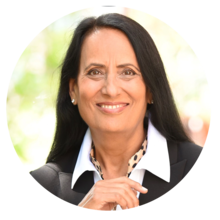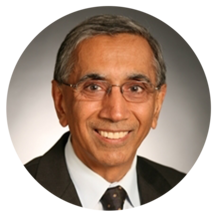About this Presentation
Missing skills can slow down or stop the flow, thus turning into a bottleneck, as much as stock out, insufficient capacity and delivery delays. This presentation introduces the Demand Driven Skills Model (DDSM), which allows to decide where to locate and how to size skill buffers depending on demand priorities. When the “holes of skills” are solved flow is protected. The DDSM includes 5 components: (1) position skill holes, (2) develop internal trainers to maintain continuous improvement, (3) evaluate training priorities to fill skill holes when facing variability of demand, (4) introduce innovation, and (5) pull and adapt skills to support the strategy. Key elements are: - The four-level Multiskills Matrix - A team of internal trainers collaborating with management - A color legend allowing to evaluate the risk for flow and to support innovations - The Competency Competitivity Plan describing the skills required to reach strategical targets over the next 3 years - Visual and continuous recognition of employees who expand their skills The maturity of skills is analyzed along 3 types and 5 groups of processes. This synthetic analysis allows top management to finance hiring and training employees in realistic Sales & Operations Planning process. The DDSM is a proven visual, demand driven, systemic approach that contributes to managing the cultural change towards an adaptive and learning company. It can be applied in any size of flow focus business and type of industry. Examples of current implementation in France will be described.
What Will You Learn
To help you get the most value from this session, we’ve highlighted a few key points. These takeaways capture the main ideas and practical insights from the presentation, making it easier for you to review, reflect, and apply what you’ve learned.

The demand-driven skill model is a tool for identifying and addressing skill gaps within a company, with a focus on protecting and accelerating workflow.
The model uses color-coded skill levels to provide a visual representation of the maturity and risk level of different job roles and cross-functional processes within a company.
The model encourages a culture of continuous learning and improvement, with trainers playing a key role in coaching teams and implementing innovations.
Instructor(s)
Caroline Mondon
Caroline MONDON CFPIM, CSCP, AEFP, DDPP, DDLP, NLP Master Practitioner, Certified Board Member, has extensive experience in operations management within manufacturing companies. She has held two positions as plant manager in both a mechanical and an electrical SME, as well as a position as Supply Chain director across seven countries in a multinational corporation. Caroline specializes in the implementation and reengineering of Supply Chain functions, with expertise in the Sales & Operations Planning process. She is a certified board member and a past president of AfrSCM, the French-speaking association for Supply Chain Management, where she promotes innovative educational approaches. Additionally, Caroline is an APICS-ASCM and DDI Instructor, as well as a co-author of the “Adaptive Enterprise Foundations” course and 'The Fresh Connection serious game A Demand Driven S&OP experience'. She is the designer of the 4th buffer, a skill described in the appendices of the Demand Driven Adaptive Enterprise and the Adaptive Sales and Operations Planning books by Carol PTAK and Chad SMITH. Caroline is also the author of a bestselling management book since 2005 in France titled "Le chaînon manquant" published by AFNOR edition, which was later published by Industrial Press USA in 2016 under the title The Missing Links: "A Demand Driven Detective Novel". Currently, she serves as an executive coach at VISCONTI Partners, focusing on “leaders challenging leaders” to design and manage supply chains that people want to belong to.

Ms Alka Wadhwa
Alka Wadhwa is an experienced consultant and process improvement expert with over 24 years of expertise in the Theory of Constraints (TOC), Lean Six Sigma, and organizational performance optimization. She has successfully led projects in healthcare, financial services, and manufacturing, driving significant improvements such as a 67% boost in hospital operations and a 140% increase in outpatient visits.
Previously, Alka Wadhwa spent 17+ years at GE Global Research Center, where she led initiatives to enhance various GE businesses through advanced technologies, process redesign, and system optimization. Founder of Better Solutions Consulting, LLC, she specializes in using TOC, Six Sigma, and data analytics to streamline operations and build high-performance teams.
Her work has earned her multiple accolades, including the Empire State Award of Excellence in healthcare.

Dr Gary Wadhwa
Dr. Gary Wadhwa is a Board Certified Oral & Maxillofacial Surgeon with extensive experience in the field. He completed his Oral & Maxillofacial Surgery training at Montefiore Hospital, Albert Einstein College of Medicine in Bronx, NY, and has served as an Attending at prestigious institutions like St. Peters Hospitals, Ellis Hospital, and Beth Israel Hospital in NY. With a career spanning over two decades, he was the former CEO and President of a group specialty practice in NY from 1994 to 2015. Dr. Wadhwa holds an MBA from UT at Knoxville, TN, and has undergone additional training in System Dynamics at MIT, Health System Management at Harvard Business School, and Entrepreneurship and healthcare innovations at Columbia Business School. Committed to expanding access to Oral & Maxillofacial Surgery care, he is currently engaged in a meaningful project to provide healthcare services to underserved populations in inner city and rural areas through non-profit Community Health Centers.
